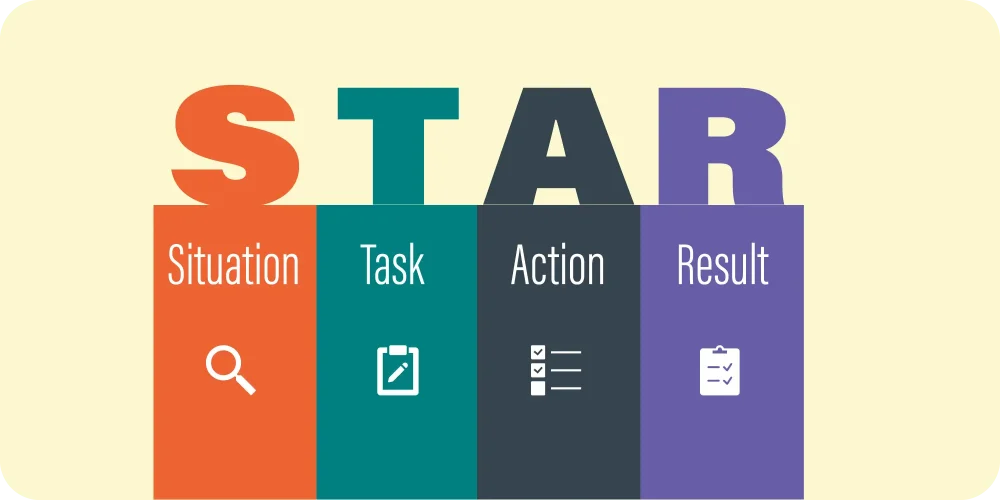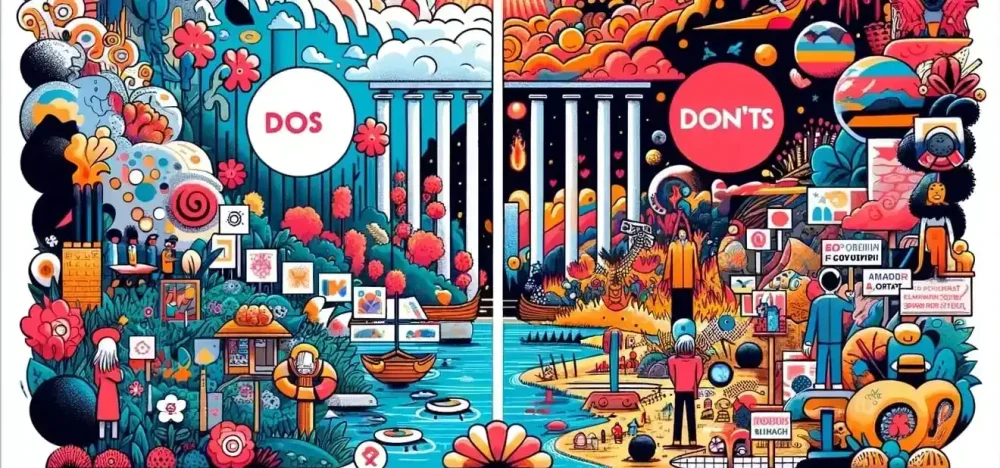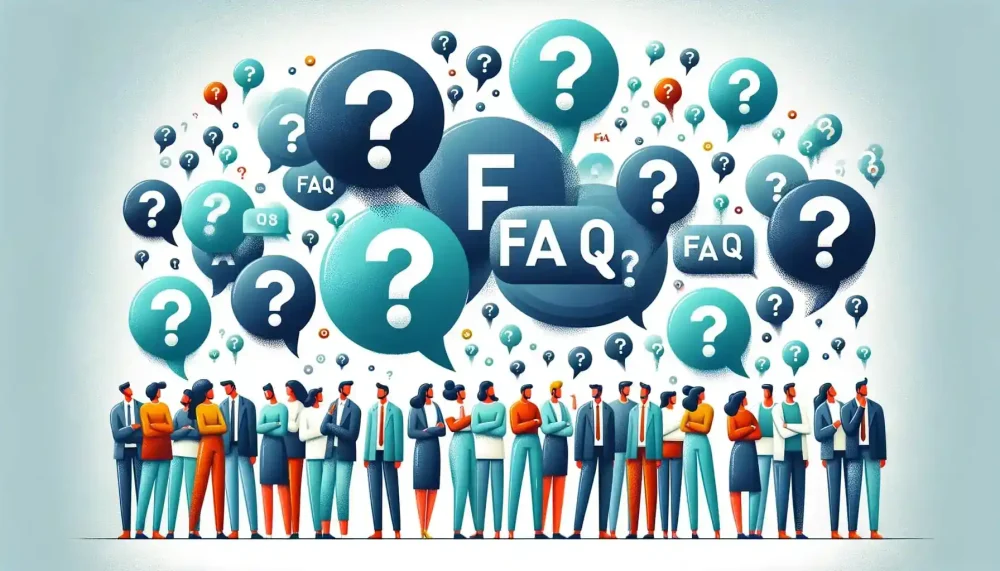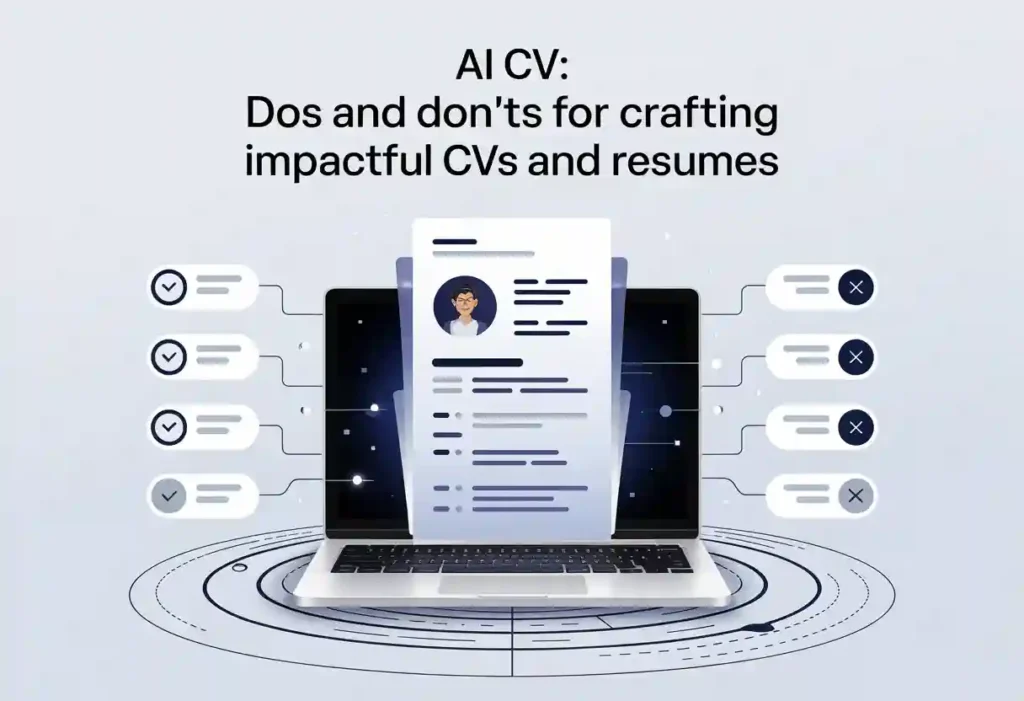Frame Your Self-Image With Positive Words: Be Your Champion
“How would you describe yourself?”
This job interview question often puts candidates in a tight corner. It’s challenging because it is loaded, and describing yourself is not something most of us spend much time thinking about.
Introductions can be tense and a bit nerve-wracking. Anyone without experience answering this question will (instantly) become nervous.
But why is this question so challenging?
A person has many (complex) qualities, and when it comes down to describing ourselves, it’s challenging to do so in a few words. It’s not because you don’t know yourself or what you’re capable of. It’s because you haven’t given it much thought.
So, when the “How would you describe yourself?” question pops up, it catches you off guard because you’re unprepared for it.
So, how do you answer this question?
Can you give an honest answer to this question and still make it memorable for the person interviewing you?
You want to answer this question without sounding boastful, insincere, generic, or giving off a sense of false humility. You also want to wow them. This is a tight spot and a thin thread to walk on. Any mistake, and things could go sideways.
How you describe yourself at the start of your interview makes all the difference and sets the tone for the rest. The best way is to prepare a description using keywords to describe yourself.
You want to answer this question in a manner that impresses the interviewer. You want them to think, “Great!” when they hear your answer. It would be fantastic if your answer were the best they had heard that day.
This blog post shares some tried-and-true strategies for answering the “How would you describe yourself?” question and helping you put your best foot forward.
Why Do Interviewers Ask, “How would you describe yourself?”
Although this question sounds friendly, the intention behind it is not. When the interviewer asks you this question, they want to get a picture of you and how you fit within the company.
They want more information about your character, personality, skills, important traits, goals, and values that can help you succeed in the company.
They want to know you better (beyond your CV or resume profile) and determine how your values fit into their company culture, ultimately benefiting them.
The recruiter is looking for the ideal candidate, and your character is one of the main deciding factors. So, they ask this question to assess whether you match the essential skills (or candidate profile) they need.
This interview question can be phrased in other ways, too, including:
- “How would you describe yourself in one word?”
- “How would you describe yourself in three words?”
- “Tell me something about yourself.”
- “Describe yourself in three words.”
- “Describe yourself in one word.”
- “How would you describe yourself as a person?”
- “How would you describe your personality?”
- “How would you describe yourself in one sentence?”
- “How would you describe yourself in 5 words?”
However, this question is phrased in a way that allows you to highlight your key strengths, positive attributes, characteristics, goals, and skills. Then, you illustrate how they make you fit for the role. Don’t make the mistake of telling the interviewer your life experience from primary school to the present.
Please don’t.
You can give a meaningful summary of your (personal) interests, hobbies, and activities outside of work, but try to keep them work-related and professional.
Whether you’re confident and assertive or insecure and timid depends on how you answer this question. The answer you come up with can contribute to your chances of success or mar them.

Strategies To Help You Answer “How Would You Describe Yourself?” In A Job Interview
How you describe yourself influences the employer’s willingness to hire you.
However, thoughtfully articulating your qualities, values, and skills on the spot can be challenging. Not knowing what to highlight or downplay can also make it difficult.
This section outlines powerful, actionable strategies to help you craft a compelling answer to this question and get you closer to your dream job.
Research the Company and the hiring manager.
Researching the company, its culture, and its industry is crucial to stand out as the right candidate. It points you in the right direction and helps you know the right words to describe yourself.
For example, if the company values teamwork, collaboration, or communication, you must emphasize how those values align with you and highlight your strengths.
Additionally, researching the interviewer is equally vital. By researching, you familiarize yourself with the person who is about to interview you. This will remove any surprises on your first encounter.
It will also help you find common ground and ensure you’re both on the same page.

Relate Your Answer to the Job Role
Not all positive traits may be relevant to the job position you are applying for. For example, if you are applying for a leadership position (e.g., General Manager), avoid saying you’re a self-starter, self-motivated, a people person, or fiercely independent.
Instead, talk about how you are a problem-solver, hard-working, and results-oriented. Discuss how you evaluate strategy, execute, communicate, and build strong relationships to motivate a team. This is how you relate your answer to the job role.
The key is crafting your answer (specifically) around the job advert and industry. Give related experiences (of your previous role) where applicable. Select positive words in your vocabulary to produce better outcomes now and in any other interview.
Maintain Honesty
When asked to describe yourself, you may be pressured to present yourself as this fantastic person. You want to give the interviewer the impression that you are exactly what they want.
This isn’t bad, but it can put you under some heat and make you exaggerate and create a façade about yourself. You can exaggerate a little, but not too much. After all, you are selling yourself.
But if you lie, you may shoot yourself in the foot. Recruiters may sense you’re lying or find out later after hiring you.
The only way around this is to be moderate and honest. Don’t focus all your energy on impressing. Be honest about your expertise, passion, learning experiences, desires, motivation, etc.
Show that you are honest by giving candid answers and having an honest conversation with the recruiter.
This will give the impression that you are an honest person and a trustworthy candidate.

Support Your Answer with a Short but Meaningful Summary
It’s one thing to establish a claim and another to prove it. Provide evidence to support those claims when you state that you are a this or a that. Summarize your talk points and examples.
For example, if you say you are creative or solve problems, you can prove this by referring to how these attributes helped you (and the company) in your last job.
Also, if you apply for an IT role, you can describe yourself as results-oriented and hardworking, and mention a project (in your last position) where this was applicable. You can also share (relevant) personal stories (maybe from college) that underscore your expertise.
Persuade With A Good Story
Storytelling can be a very impactful and powerful tool when describing yourself in an interview. Instead of blasting away a litany of your qualities, weave in a narrative showcasing your most important traits in action.
Frame your skills and experiences in an engaging narrative arc. This will help you craft a compelling portrait of your personality that complements the role.
A compelling story can help you connect, engage, and influence the interviewer’s hiring decision. It is also more persuasive and memorable.
For example, you want to discuss how you overcame a difficulty at work. You can narrate how you experienced setbacks in a marketing project and how you resolved them, exceeding sales goals.
This showcases problem-solving skills, drive, and grit. It convinces the interviewer that you can hold up under pressure, handle complex tasks, and use available resources to bring positive outcomes.

Use A Framework To Explain
Frameworks are your best go-to tools if you want to formulate expressive answers. Frameworks are like roadmaps that guide how you respond. They artfully structure the quality of your answers and help you cover essential points without rambling.
Using a framework to describe yourself in an interview (or cover letter) provides clarity and impact. It helps you to present your capabilities and accomplishments systematically. A framework will prevent you from responding autonomously.
The frameworks below are the best ways to ensure your stories stay relevant to a job interview context.
Use the STAR framework to explain
- Situation
- Task
- Action
- Result
Or the SARI formula to develop your storytelling strategy.
- Situation (or task)
- Action
- Result
- Interesting features (a bonus!)
You can also use the B-A-C-A-R framework.
- Background
- Asked to Do
- Challenge
- Action
- Result
Or the PAST framework
- Problem
- Action
- Solution
- Timeframe
Let’s examine one after another.

An Example of Applying the STAR Method
“Tell us about a period when you had a conflict at work.”
Here’s an example answer and a reflection.
Situation: I was taking part in a crucial meeting at work with staff members and representatives from two external suppliers.
During the meeting, a representative from one of the supplier companies started making derogatory comments toward me that I found inappropriate.
Task: I wanted to confront the person who was making the comments, but professionally. I aimed to make him aware that the comments were not welcome without ruining the meeting atmosphere.
Action: I responded by telling him I had been part of this team for quite some time. And I felt I deserved more respect than he was currently affording me. I said it confidently and professionally to avoid ruining the integrity of the meeting.
Result: Immediately after I said what I wanted, he apologized unreservedly, and the remainder of the meeting went smoothly and without any issues.
I always tackle any conflict head-on, professionally and calmly, to resolve it quickly and amicably.
REFLECTION ─ At the end of the situation, I reflected upon my performance to see if I could improve for next time. I felt I handled it well. I was able to control my emotions positively. And I ultimately achieved the desired outcome.
An Example of Applying the B-A-C-A-R Framework.
Background: What was the background and specific situation that gave rise to the issue you solved?
Setting out the background is vital to describe your role within the outcome correctly.
Asked To Do: What did they ask you to do? Who asked you?
Why? For ease of understanding, you must define what, why, and who.
Challenge: What was the biggest obstacle you had to overcome?
That is, to get from the “asked to do” to the desired outcome.
Even ‘positive’ questions should include a challenge you must overcome.
Action: What steps did you take to overcome the obstacle and achieve the desired outcome?
This case is not a team effort; it’s about YOU.
Do not say, “We did this.” The company is interviewing you. So, focus on yourself.
Result: State the outcome and repeat the question.
“So, that was how I solved the issue. And that’s the best example of how I dealt with a difficult situation where I wasn’t sure of the outcome.”
Most interviews will assess leadership, teamwork, successes, failures, personality, achievements, and research competencies.
Practice
As the old saying goes, “practice makes perfect.” This philosophy applies to every context, especially in an interview. You can’t go wrong with practice; it will benefit you.
Write down your talk points and go over them again and again. You can practice in front of a mirror, with a friend/family, or by saying the words out loud.
It may feel a little silly, but don’t avoid practicing. You won’t find the perfect words to describe yourself on the spot. A list of descriptive words won’t be enough, either.
Practice and have some fun while doing it.

Be Confident
Having the jitters on the big day is quite normal. However, if you are nervous, you will likely ramble, stutter, and not think clearly. So relax and shake off those nerves before the interview.
Be confident in yourself and your preparation. Give authentic, well-articulated, and complete answers. Confidence prevents you from putting yourself in a submissive position.
When you are assertive and confident (with your answers and body language), the employer or recruiter will sense your confidence and act appropriately around you.
- Make a firm handshake
- Speak clearly
- Make eye contact
- Sit up. Don’t slouch
- Accept water when offered
However, you must tread carefully at this point. Acting and speaking with confidence doesn’t mean you should sound arrogant. The employer will not appreciate a cocky attitude and you won’t get anywhere with it. Exaggerating or being boastful could cost you the job.
Be Positive
When you hear the “How would you describe yourself?” interview question, you may make the mistake of mentioning a few negative traits. While honesty is good, mentioning negative traits is an interview mistake.
Unless you are specifically asked about your weakness, resist the compulsion to mention traits detrimental to you in an interview.
No one is born perfect, agreed. However, your concerns should be about impressing the recruiter and selling yourself as the right candidate.
So, maintain positivity by using positive words to describe yourself. Positive words are the best words to use in your vocabulary. If you don’t know what to say, consult friends or family for help.

Best Words To Describe Yourself With At Job Interviews
When preparing for this interview question, note that the hints to the perfect response lie in the words used in the job description. If you’ve done your homework, you know what qualities they’re looking for.
Knowing the right words to describe yourself is a game-changer. That knowledge alone can improve your chances of getting hired.
Here are some valuable examples of adjectives to ‘boast’ about who you are. Unless an interviewer asks for more, like “Describe yourself in five words,” using two to four words is best!
To express CREATIVITY, use descriptive words. For example:
- Adaptable
- Curious
- Dynamic
- Eclectic
- Imaginative
- Innovative
- Inventive
- Original
- Thoughtful
- Unconventional
- Unique
- Versatile
Let them know that you are FOCUSED by using descriptive words such as:
- Accurate
- Assiduous
- Attentive
- Careful
- Categorical
- Detail-oriented
- Diligent
- Methodical
- Meticulous
- Patient
- Precise
- Particular
- Results-oriented
Demonstrate your AMBITION using these words to describe yourself:
- Bold
- Committed
- Courageous
- Dependable
- Determined
- Persistent
- Disciplined
- Driven
- Proactive
- Energetic
Show that you are OPEN-MINDED using these words to describe yourself:
- Approachable
- Balanced
- Broad-minded
- Easy-going
- Interested
- Flexible
- Observant
- Perceptive
- Communicative

Let them know that you’re DIRECT by using these words to describe yourself:
- Assertive
- Candid
- Decisive
- Disciplined
- Honest
- Matter-of-fact
- Prompt
- Realistic
- Responsible
- Straightforward
Finally, are you a PEOPLE PERSON? Is it relevant to the job for which you’re applying?
Use descriptive words such as:
- Active
- Collaborative
- Cooperative
- Team player
- Fair
- Energetic
- Outgoing
- Team member
- Receptive
- Respectful
- Passionate
- Sociable
- Cheerful
- Supportive
- Trustworthy
Of course, employers may want you to describe yourself in a way that’s more than just a list of adjectives. Fold these qualities into complete sentences so they do not seem like you’re just repeating a list.
Like this post?
Sign up for our blog updates and never miss a post.
We’ll send you A FREE job interview eBook as a thank-you.
You can even mention how people describe you at work. Natalie Fisher provides some great real-world examples of what to say:
- “Just last week, someone complimented me on how approachable I am.”
- “In the past, my colleagues have noticed that I’m a straightforward communicator.”
- “My co-workers think of me as a very committed person.”
CareerVidz provides 20 powerful words to describe yourself with (and increase your chances of success) in this video:
How would you describe yourself? Best answer?
There is no “perfect response” to this common query. There isn’t a rigid (one-size-fits-all) approach to it. However, the best answers seamlessly (and briefly) identify your abilities, growth, and firm goals.
Therefore, answering this question demands self-awareness. This ability will help you convey your strengths.
How you describe yourself at the start of your interview can be the difference between success and failure. Your introduction and first impressions are crucial.
This section provides a flexible blueprint or format that you can customize. The sample answers here are modeled to help you frame your delivery to wow employers.
So, to get your interview off to a flying start, consider the sample answers below.
Sample Answer 1: If you are passionate about your work
“I am very passionate about my work as a marketing leader. I am always motivated and committed to understanding my customers better and finding solutions for them. This drives me to do my best and challenges me to learn new skills.
I am very empathetic towards my clients and mentor others to grow. This is where my passion shines through. A coworker once told me that I pursue projects with infectious excitement. I constantly explore new ideas, learn, and grow personally and professionally. I believe being passionate about your work is the driving force behind every success.”
Sample Answer 2: If you are creative
“I would describe myself as a creative person. I’m a writer, and I thrive on immersive imagination. My creativity has made me a great team leader because I can anticipate problems and offer innovative solutions. I believe this is my most important trait. Over the years, I have trained myself to condense complex ideas into simpler ones. I do this for all of my writing, which yields terrific results.
Although I am capable of handling independent projects, I prefer to be a team player. My ability to work alongside other like-minded individuals helps me develop spot-on concepts. I remember when my previous employer gave me several writing projects. I was commissioned to write a collection of short copies for a web page. My previous employer applauded me for being creative and breathing life into the copies.”
Sample Answer 3: If you are organized
“I am very organized. I thrive on organization. I employ various tools to keep my workspace and projects organized. I have a knack for proactive planning and logical filing. This helps me achieve what I need and meet deadlines on time.
Whether managing complex projects or simple daily tasks, my knack for organization increases my efficiency, quality of work, and laser focus. Being organized is an excellent motivator for group efficiency. In my previous role as an event planner, my organizational skills helped me create large-scale events with multiple parts. The results were seamless and successful.”

Dos and Don’ts
Here are some dos and don’ts to remember when responding to the question: “How would you describe yourself?” in an interview.
Dos
- Describe yourself in terms of your skills and accomplishments.
- Be specific about what you have done and how it has helped others or improved the world.
- Talk about values essential to how you want to live and work. If you’ve done your research, you should know if these align with the importance of the company you are interviewing for.
- Be specific about what aptitudes you would bring to the position and include any related experience you have had.
- Mention your shortcomings with tact and diplomacy. You want them to be seen not as a negative but as an opportunity for improvement or development.
Don'ts
- Don’t be humble when describing yourself. You want to accurately and positively represent who you are so that interviewers can decide whether to hire you.
- Don’t be vague or say cliché things like, “I’m a good worker” or “I love to travel.”
- Don’t talk too much about yourself. Enough is enough, so don’t be a braggart. Instead, give clear and concise details of your skillset and experience. These should provide insights for the interviewer.
- Don’t lie. It will backfire on you later. It’s better to undersell yourself than oversell and under-deliver.

Frequently Asked Questions
How Would You Describe Yourself As A Student
Whether you’re a university or high school student, you first and foremost have to know your inner uniqueness and strengths. As a student, you can describe yourself as curious, hardworking, determined, independent, adaptable, or thoughtful. For example;
“I am a very thoughtful student. While working on a group project for my science class, I listened and acknowledged every idea my teammates offered. This initiative helped me to produce a successful project. I take pride in the fact that I was able to understand and work with my teammates to accomplish something great.”
How Would You Describe Yourself As A Leader
You must narrow down your leadership style and illustrate how you lead others to productivity. In this 7-minute video, CareerVidz outlines seven different leadership styles and brilliantly scripted answers.
For example;
“As a leader, I prioritize collaboration, inclusion, and continual growth to attain success. I delegate tasks and lead by example, and with accountability. Through that, I foster inspiration and motivation for development. I define success by my positive influence and caring for others.”
Embrace Your Authentic Self: Discover Your Best Self
Being able to describe yourself is a skill that does wonders. You have to be able to self-reflect on a deeper level and then relate it to the role. Also, you must frame your responses concisely, convey your strengths eloquently, and highlight your abilities.
Describing yourself with such mastery is not a walk in the park. However, you can cultivate this capability by practicing regularly. It won’t be easy, but with the help of this article, you can be on your way to success. Self-awareness and yearning for continual growth are all you need.
If you’ve read this far in this article, congratulations! You are confident you can add value and be authentic during interviews.
Answering the “How would you describe yourself” question with the proper methods and efforts becomes exciting. Keep these tips (in this article) in mind when you’re preparing for your next interview. Now go out there, put these tips into action, and own your response!
Cheers!



